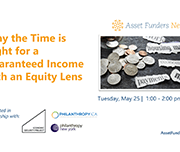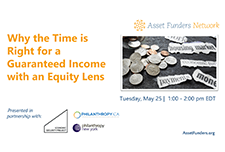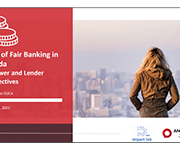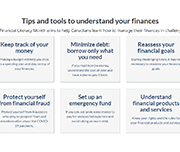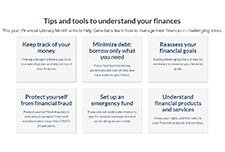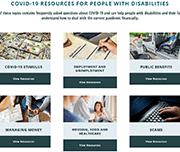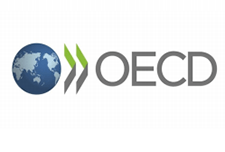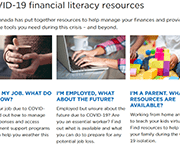English
Soaring with savings - Tips and tools to help you save
SWS Worksheet #1 – The importance of saving (Fillable PDF)
SWS Worksheet #2 – Create a savings goal (Fillable PDF)
SWS Worksheet #3 – Savings support network (Fillable PDF)
SWS Worksheet #4 – Saving for emergencies (Fillable PDF)
SWS Worksheet #5 – Saving for unstable income (Fillable PDF)
SWS Worksheet #6 – Saving for education (Fillable PDF)
SWS Worksheet #7 – Saving for retirement (Fillable PDF)
Soaring with Savings- Full booklet

Soaring with savings - Training tools
French
Encourager l’épargne - Conseils et outils pour vous aider à épargner
Encourager l’épargne - l’aide d’animation
Ressources
CELI calculatrice, La Commission des valeurs mobilières de l’Ontario
REER, La Commission des valeurs mobilières de l’Ontario
Épargnez plus facilement, CVMO
Investir et épargner pendant une récession, La Commission des valeurs mobilières de l’Ontario
Why the Time is Right for a Guaranteed Income with an Equity Lens
Over 50+ mayors in the United States have joined a national initiative Mayor’s for Guaranteed Income (MGI). Many advocates and practitioners now believe the moment has arrived for a guaranteed Income with an equity lens. In this webinar, perspectives from a diverse group of thought leaders involved in GI initiatives including practitioners, government representatives and philanthropy were heard. Panelists shared outcomes and new research results from some of the most successful GI pilots in the country (Stockton and Mississippi); goals for the newly launched Mayor’s for Guaranteed Income; how philanthropy can play a catalytic role and what this moment tells us about the future of guaranteed income initiatives.
Investing and The COVID-19 Pandemic: Survey of Canadian Investors
The Investor Office conducted this study to further our understanding of the experiences and behaviours of retail investors during the COVID-19 Pandemic. The study explored several topics including the financial preparedness, savings behaviour, financial situations, changing preference, and trading activity of retail investors. Key findings include that 32 per cent of investors have experienced a decline in their financial situation during the pandemic while 16 per cent have experienced an improvement. Half of investors have not done any trading during the pandemic, but of those who have been trading, 63 per cent have increased their holdings.
State of Fair Banking in Canada 2020: Borrower and Lender Perspectives
The DUCA Impact Lab defines fair banking as any financial product or service that lives up to the following set of principles: Their Fair Banking 2020 report presents data on the following areas:
Financial Life Stages of Older Canadians
This study, commissioned by the Ontario Securities Commission (OSC) and conducted by the Brondesbury Group, provides some insights on the knowledge that older Canadians have about the financial realities of retirement and how they would apply that knowledge earlier in life if they are able to do so. The top financial concerns and main financial risks of older Canadians are identified for each life stage and how they are being managed are discussed.
Encouraging Retirement Planning through Behavioural Insights
This research report identifies behaviourally informed ways that government, regulators, employers, and financial institutions can encourage retirement planning. Thirty different initiatives and tactics that could be implemented by a variety of stakeholders to encourage retirement planning are proposed, and interventions are organized around four primary challenges people face in moving from having the intention to create a retirement plan to the action of making a plan: (1) it’s hard to start, (2) it’s easy to put off, (3) it’s easy to get overwhelmed and drop out, and (4) it’s hard to get the right advice. The report also includes the results of a randomized experiment that evaluated several of the approaches proposed in the report. This report was published as part of the Ontario Securities Commission’s strategy and action plan to respond to the needs and priorities of Ontario seniors.
Financial Literacy Month – 10th anniversary Resources
For the 10th anniversary of Financial Literacy Month in Canada, Financial Consumer Agency of Canada (FCAC) has released resources to help Canadians learn how to manage their finances in challenging times. Resources include the following topics:
COVID-19 Resources for people with disabilities
National Disability Institute (NDI)'s Financial Resilience Center offers resources and assistance to help those with disabilities and chronic health conditions navigate financially through the COVID-19 crisis. Resource topics include:
National Strategies for Financial Education: OECD/INFE Policy Handbook
Financial education has become an important complement to market conduct and prudential regulation and improving individual financial behaviours a long-term policy priority in many countries. The OECD and its International Network on Financial Education (INFE) conducts research and develops tools to support policy makers and public authorities to design and implement national strategies for financial education. This handbook provides an overview of the status of national strategies worldwide, an analysis of relevant practices and case studies and identifies key lessons learnt. The policy handbook also includes a checklist for action, intended as a self-assessment tool for governments and public authorities.
COVID-19 financial literacy resources
CPA Canada has put together resources to help manage your finances and provide you with the tools you need during this crisis – and beyond.






